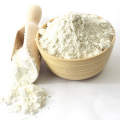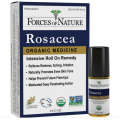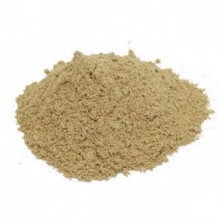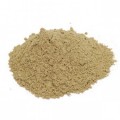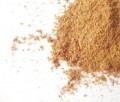 Loading... Please wait...
Loading... Please wait...- Home
- About Us
- Shipping, Returns & FAQ's
- Contact Us
-
For Your Information
- Canadian Customers Have a Choice if Shipping Via UPS
- Aura Cacia Homemade Aromatherapy Recipes
- Bella Nella Altered Art & Paper Crafts Blog
- Forms of Herbal Preparations
- Laundry Tips To Conserve Energy Blog from The Laundress
- The Story of Frontier Natural Products Co-Op
- Sovereign Silver Hydrosol and Aloe Protocol Stops Downward Spiral of Gut Dysbiosis
- Disclaimers
- Recommended Links
- RSS/Recent News
- The Story of Typhoon Housewares
- Reviews/Testimonials
- Raw Ingredients for Mfg
Artichoke Leaf 10:1 Standardized PE (Powdered Extract) Bulk
Product Description
Artichoke has chemicals that can reduce nausea and vomiting, spasms, and intestinal gas. These chemicals have also been shown to lower cholesterol.
In foods, artichoke leaves and extracts are used to flavor beverages. Cynarin and chlorogenic acid, which are chemicals found in artichoke, are sometimes used as sweeteners.
Effective For:
- Indigestion. Artichoke leaf extract seems to reduce symptoms such as nausea, vomiting, flatulence, and stomach pain in people with indigestion. Improvement seems to occur after 2 to 8 weeks of treatment.
- High cholesterol. Taking artichoke extract seems to modestly reduce total and low-density lipoprotein (LDL or “bad”) cholesterol, and the LDL/high density lipoprotein (HDL or “good”) ratio after 6 to 12 weeks of treatment.
- Artichokes contain flavonoids and promote antioxidant support.*
- There is some indication that the flavonoids in Artichoke may help promote digestive health and liver health.*
Cleansing the liver--when toxins build up in the liver it is unable to function adequately. According to Natural Detox, signs that the liver needs cleansing include headaches, fatigue, dizziness, premenstrual syndrome, skin irritation, dry mouth and sluggish digestion. The bile production, stimulated by the artichoke leaf extract, benefits the liver by helping it to eliminate toxins.
Irritable bowel syndrome is a chronic digestive disorder, which can cause stomach pain, constipation, bloating, gas, loss of appetite, emotional distress and depression. In August 2004 The Journal of Alternative and Complementary Medicine published a study claiming that artichoke leaf extract can improve symptoms of irritable bowel syndrome.
Germany's Commission E has authorized its use for "dyspeptic problems." Dyspepsia is a rather vague term that corresponds to the common word "indigestion," indicating a variety of digestive problems including discomfort in the stomach, bloating, lack of appetite, nausea, and mild diarrhea or constipation.
Dosage:
- For heartburn: 320-640 mg artichoke leaf extract three times daily.
- For high cholesterol: 1800-1920 mg per day of artichoke extract in 2 to 3 divided doses. Products containing 60-1500 mg per day of the active ingredient, cynarin, have also been used.
Warnings:
Artichoke leaf has not been associated with significant side effects in studies so far, but full safety testing has not been completed. For this reason, it should not be used by pregnant or nursing women. Safety in young children or in people with severe liver or kidney disease has also not been established. In addition, because artichoke leaf is believed to stimulate gallbladder contraction, individuals with gallstones or other forms of gallbladder disease could be put at risk by using this herb.
The leafy cardoon (Cynara cardunculus L.) and the globe artichoke (Cynara scolymus L.) are two cultivars of a new subspecies Cynara cardunculus L. subsp. flavescens Wiklund. Nevertheless, the botanical name, Cynara scolymus has been kept for the monograph, in accordance with the European Pharmacopoeia (Cynara scolymus) not distinguishing morphologically the two types of the plant cultivars (globe artichoke and leafy cardoon).
Botanical Name: Cynara cardunculus var scolymus
Standardized: 7% cynarin
aka: Pharmacopoeial Name: Cynarae folium. Other Names: The name has originated from ardi shauki, which is Arabic for ground-thorn, through the Italian: articiocco, English: globe artichoke, French: artichaut, German: Artischocke, Hungarian: articsóka level, Latvian: artišoka lapas, Greek: Κιν?ρα, Swedish: kronärtskocka, Dutch: artisjok, Portuguese: alcachofra, Croatian: arti?oka, Turkish: enginar, Spanish: alcachofa, alcachofera.
Origin: China
Notes: Kosher Certified and Halal AHF. Non-irradiated. No ETO. Carrier used: Maltodextrin 6%
Specifications are subject to change without notice.
* FDA disclaimer
References
webmd
NYU Langone Medical Center
livestrong
European Medicines Agency (pdf)
You Recently Viewed...
Currency Converter
Choose a currency below to display product prices in the selected currency.




